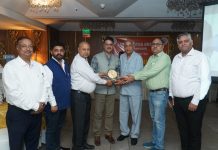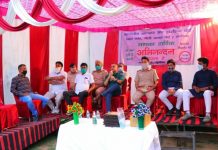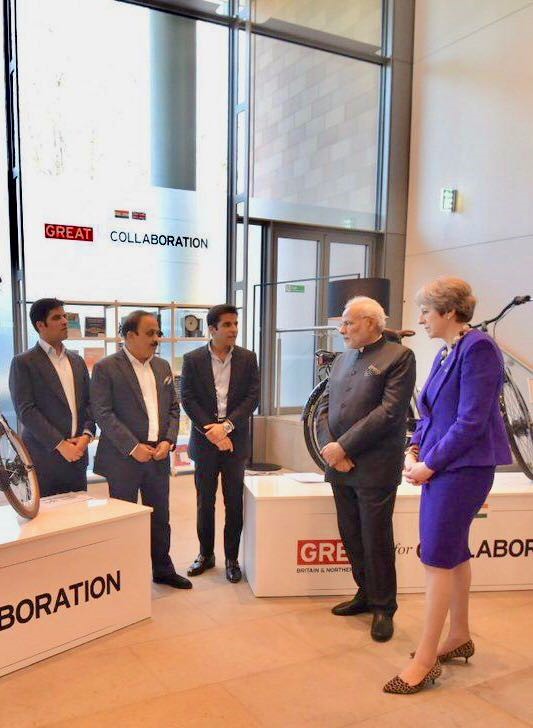Ludhiana
20 April 2018
DIVYA AZAD
Chairman – Hero Motors Company, Pankaj M Munjal, along with Aditya Munjal, Director of Firefox and Abhishek Munjal, Director of Hero Cycles Limited met Prime Ministers of India & UK, Mr. Narendra Modi and Ms. Theresa May respectively at UK on the eve of the 25th Commonwealth Heads of Government Meeting (CHOGM) at a business function, and talked about their shared vision of realizing sustainable development in both these countries.
It is to be noted that on Wednesday, the two governments had issued a joint statement in pursuance of a bilateral trade agreement that mentioned cooperation and collaboration in dealing with, among other things, the threat of climate change and urban sustainable development.
“The Commonwealth Summit provides an excellent opportunity for both these nations, entwined by historical ties, to take the lead in organizing sustainable development and fending off climate change. We pride ourselves at being part of innovative and green mobility and lifestyle fitness solutions through cycling. Hero Cycles has made it big in the UK and we intend to expand to mainland Europe soon with our patently English brand, ‘Insync’. We feel that the time to integrate cycling as a critical component of projects such as Smart Cities, Carbon Emission Reduction and Traffic Management, has come”, says Mr. Pankaj M Munjal, Chairman, Hero Motors Company.
The Hero Motors Company has invested in a high end design unit in Manchester after acquiring UK’s Avocet, and which functions as the engine of its global ‘cycling as lifestyle’ campaigns while also providing local employment and economic contributions. The actual units are manufactured in state of the art plants in India and Sri Lanka and exported to 51 countries around the globe.
Traffic management and reduction of carbon emissions has been an issue in London and other industrial towns in the UK with numerous campaigns to promote cycling having been launched recently. In India, the problem of scarcity of dedicated cycling lanes, safety of the rider from motor vehicle traffic and proper street lighting have hampered the growth of urban cycling.
Innovative cycling solutions such as cycle to work, finance on rural cycle ownership, subsidy on eBike ownership, creation/demarcation of secured cycling pathways, bicycle sharing etc provide legitimate answers to commuter woes by helping decongest traffic, provide last mile connectivity, vehicle portability and an initiation to the virtuous cycle of lower emissions, lower greenhouse externalities, lower atmospheric pollution, quieter neighbourhoods and healthier lifestyles.















































